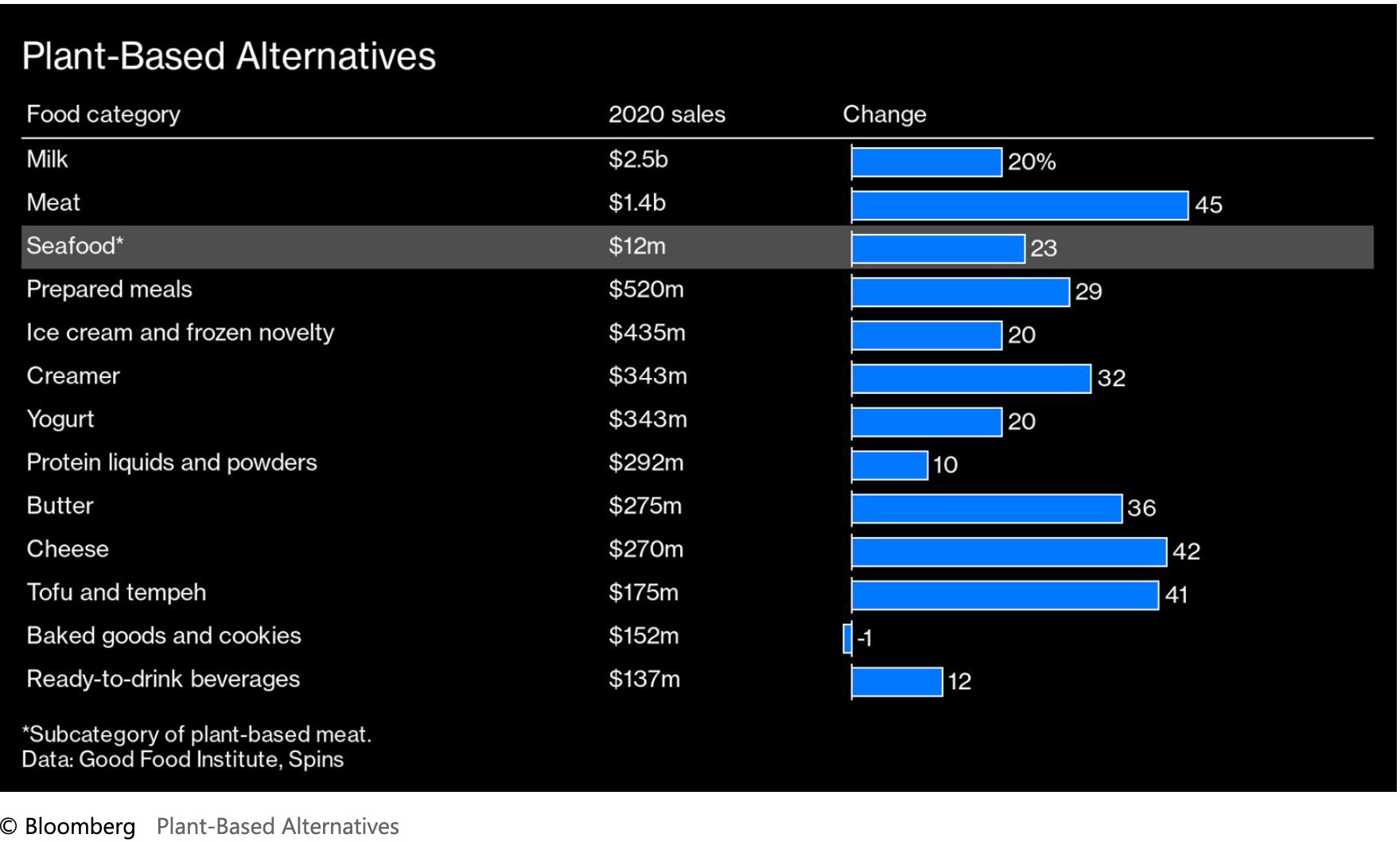UNITED STATES, August 10, 2021 (Bloomberg Businessweek): When a tuna marketing executive took a bite of the dehydrated tomato seasoned with olive oil, algae extract, spices, and soy sauce early last year, he was shook. “This is going to be a problem for us,” he said. At least that’s how Ida Speyer, co-founder and chief executive officer of Mimic Seafood, recalls it, designating it the highest praise she could’ve imagined for the delicate slice of tuna that—despite what the marketing executive’s taste buds indicated—contained no tuna at all. The Madrid-based startup’s Tunato product, fabricated from a specialty tomato variety grown in southern Spain that resembles sliced sushi-grade tuna in shape and size, is part of a growing class of food innovations fighting for the last empty shelf in the booming plant-based protein market: seafood.
Faux fish, which Speyer concedes “maybe 5 or 10 years ago would have seemed too far out, too different, or only something for vegans,” is just a tiny fraction of the alternative protein market, dwarfed by the more mature faux meat and alt-dairy sectors. U.S. sales of plant-based seafood grew 23%, to $12 million, in 2020, compared with a traditional seafood market worth tens of billions of dollars, according to the Good Food Institute, an international nonprofit pushing for more sustainable proteins. But the sector is evolving quickly. Investment in U.S. plant-based seafood hit $70 million in the first half of 2021, as much as in the past two years combined.
Much more at “source” here:
https://www.msn.com/en-us/money/companies/plant-based-fish-is-rattling-the-multibillion-dollar-seafood-industry/ar-AAMYzVU
A daily summary of world news for Hindus and non-Hindus alike

